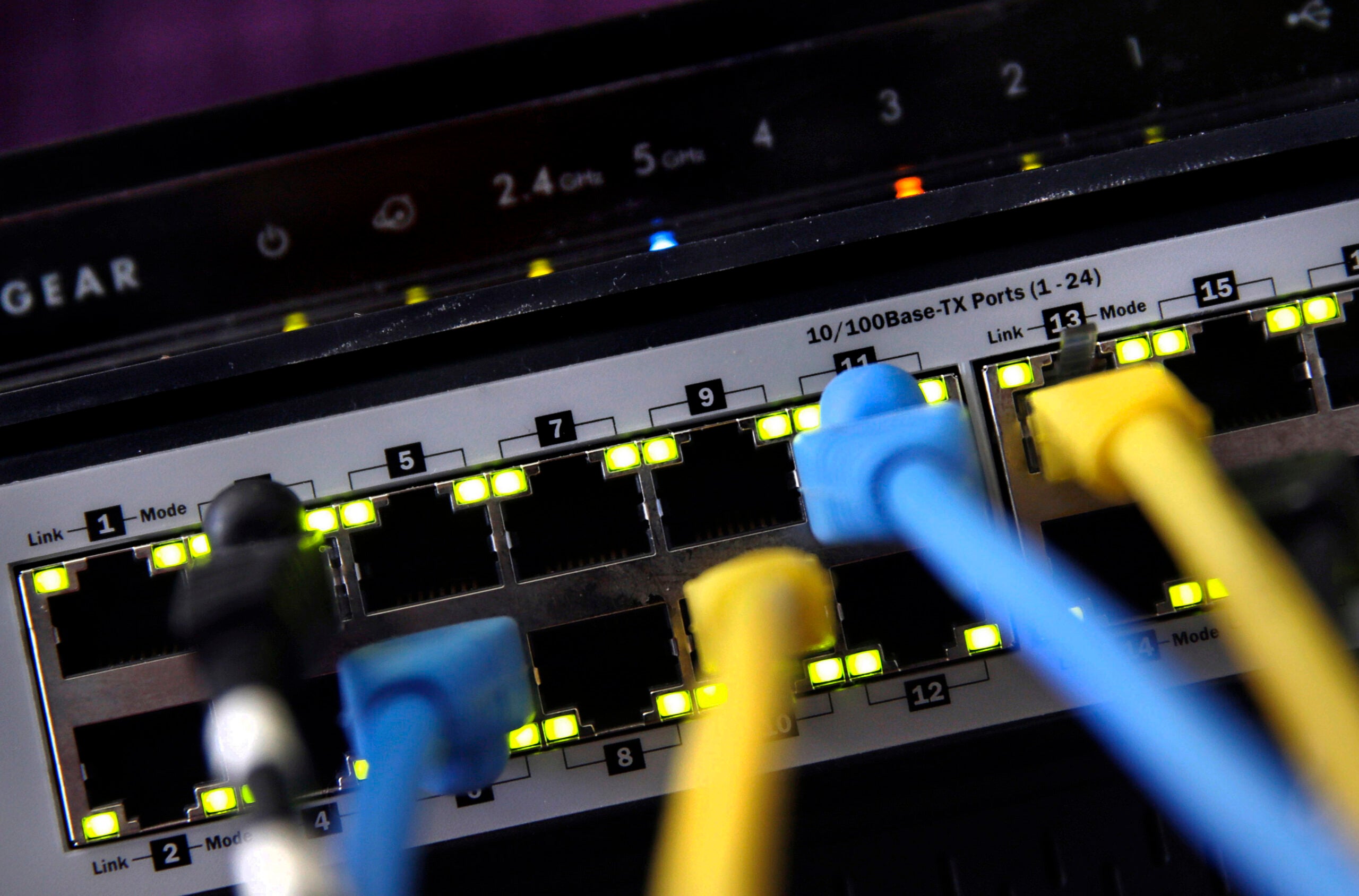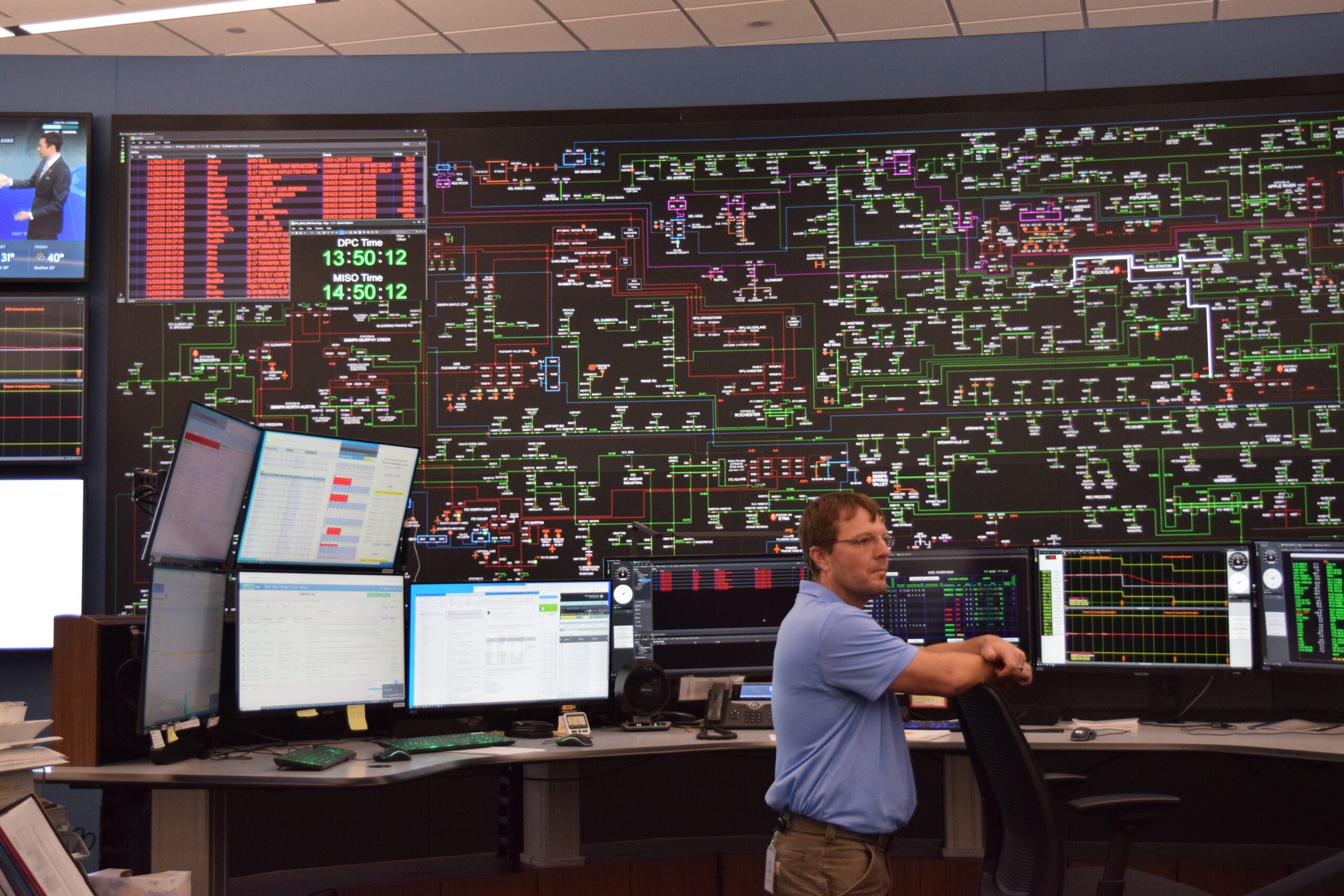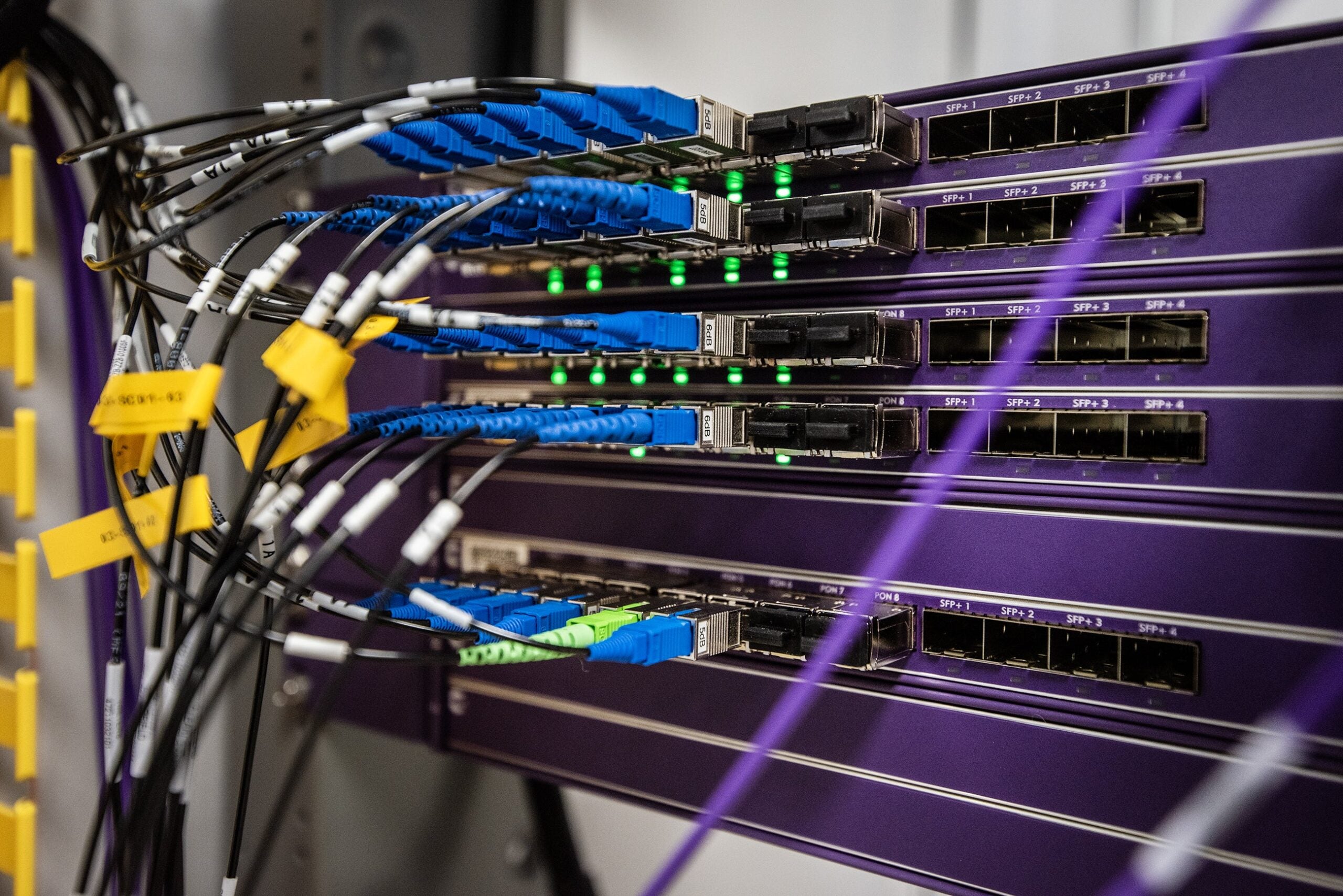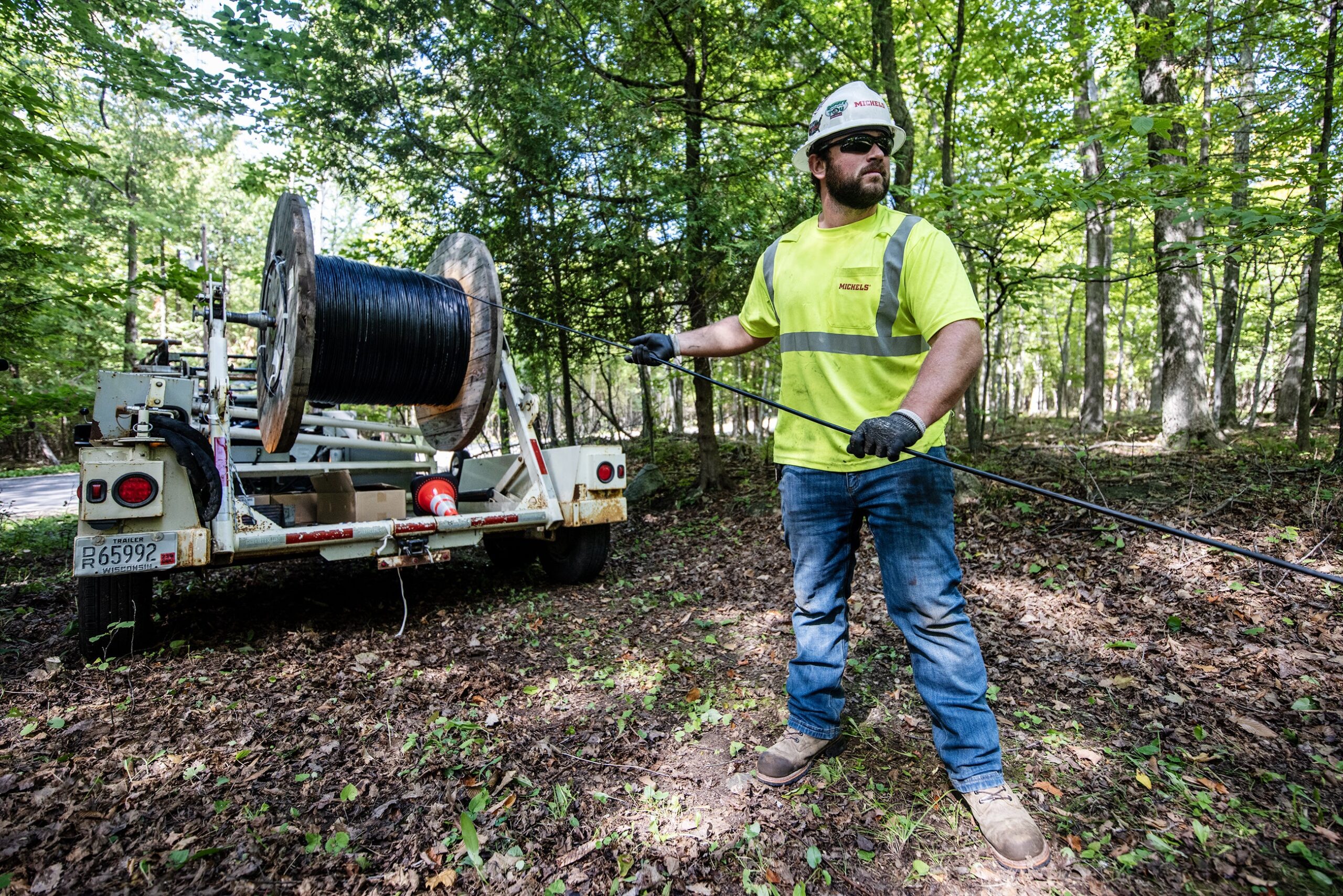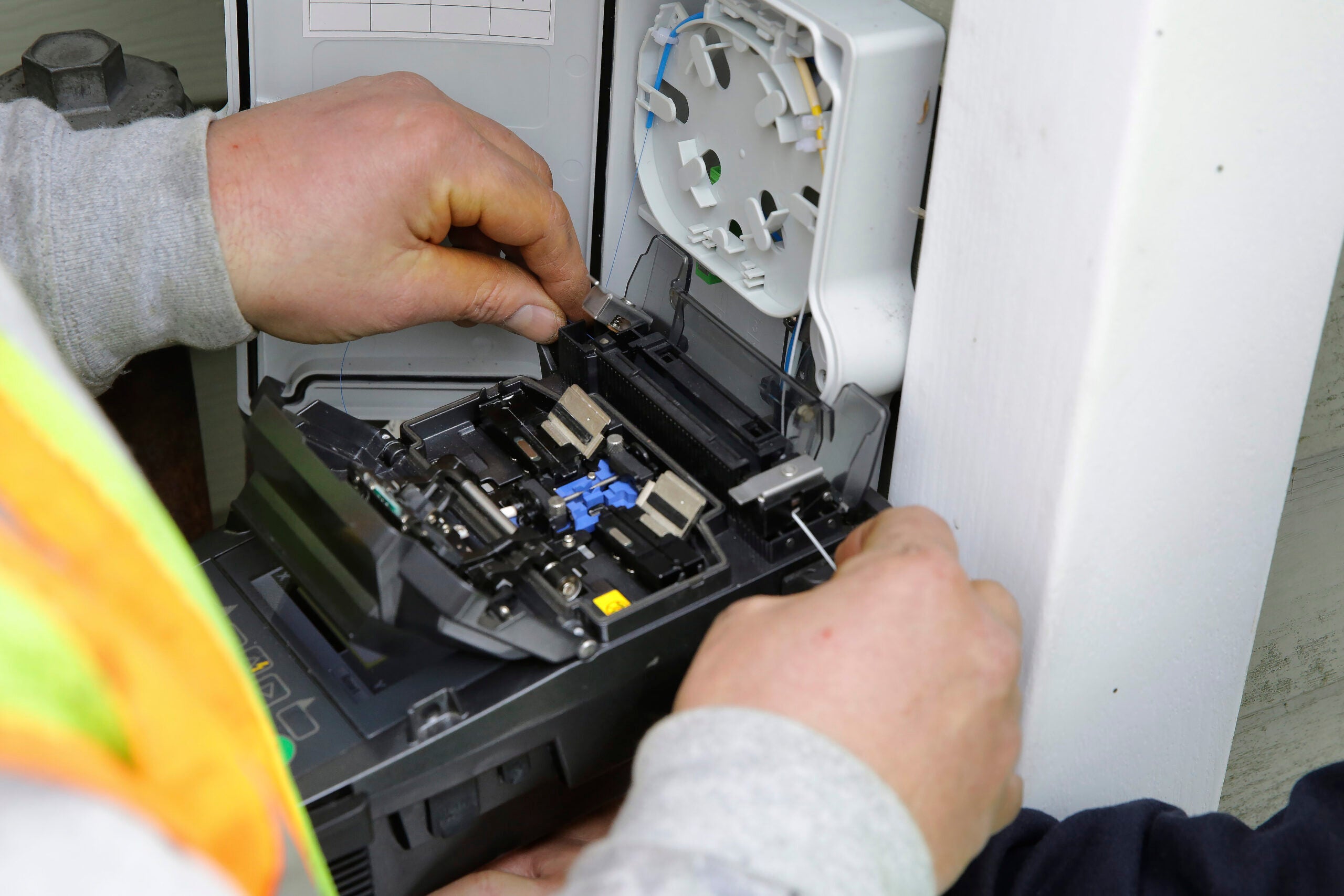Gov. Tony Evers’ proposed budget calls for the state to invest $750 million in broadband expansion over the next decade as Wisconsin could receive more than $1 billion from the federal government.
Despite the infusion of federal dollars, the head of the Public Service Commission said state funding will still be needed to ensure everyone has access to high-speed internet.
Just how much federal money Wisconsin will receive is still in question due to new broadband maps released late last year by the Federal Communications Commission, or FCC. The maps determine who lacks high-speed internet and underserved areas that would qualify for $42 billion in funding nationwide. The money is part of grants available through the Broadband Equity, Access, and Deployment Program established by the bipartisan infrastructure law.
Stay informed on the latest news
Sign up for WPR’s email newsletter.
The accuracy of those maps has already been challenged by multiple states, including Wisconsin. The Public Service Commission, or PSC, challenged 7,000 locations in Wisconsin where the commission believes designations were missing or incorrect.
“If the funding is allocated on faulty maps, then by definition, we’re going to receive less than we should,” said PSC Chair Rebecca Valcq.
The FCC accepted almost 3,000 of the state’s challenges, according to Alyssa Kenney, state broadband and digital equity director. In addition, the state submitted 269,000 challenges to providers’ service claims. The FCC accepted just 20,000.
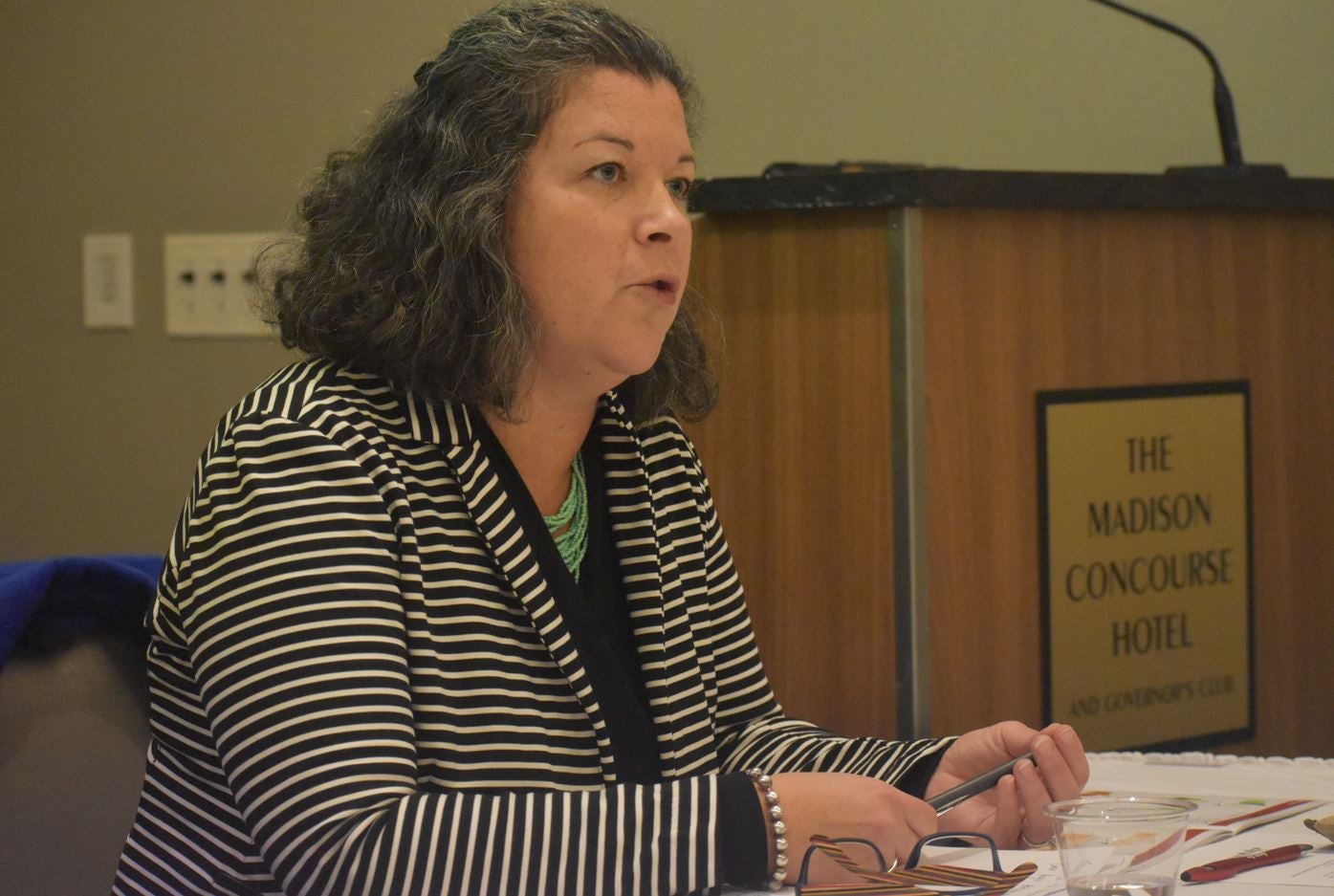
“The FCC accepted a small chunk of those, but they also rejected a chunk because we just weren’t able as a state to provide enough clear and compelling evidence,” Kenney said.
Valcq said that’s why it’s imperative to continue providing state funding for broadband expansion to ensure Wisconsin can fill gaps that may not be addressed by the federal government. She said the state expects to learn its share of federal funding by June and urged people to continue to submit challenges to help the state with deployment of funds.
The FCC did not respond to a request for comment on challenges to its maps. In December, FCC Chairwoman Jessica Rosenworcel said the maps show broadband that’s available at a physical location rather than by census blocks as reflected under old maps.
“That means these new maps provide the best picture available to date of where broadband is and is not available across the country, and the maps will only get better over time as the FCC gets input from stakeholders across the country,” Rosenworcel said.
Under the federal grant program, unserved locations are prioritized for grants if they lack internet access or only have speeds of 25 megabits per second download and 3 megabits per second upload, which is enough for basic video streaming. Underserved locations that have speeds of 100/20 megabits per second would also qualify for funding.
In far northern Wisconsin, city leaders in Superior say internet providers are reporting better internet service than what actually exists.
“I want to make sure funds are getting folks served at an affordable rate,” Superior City Council member Tylor Elm said. “I just don’t want people to be excluded, especially in urban areas where there’s still a real need.”
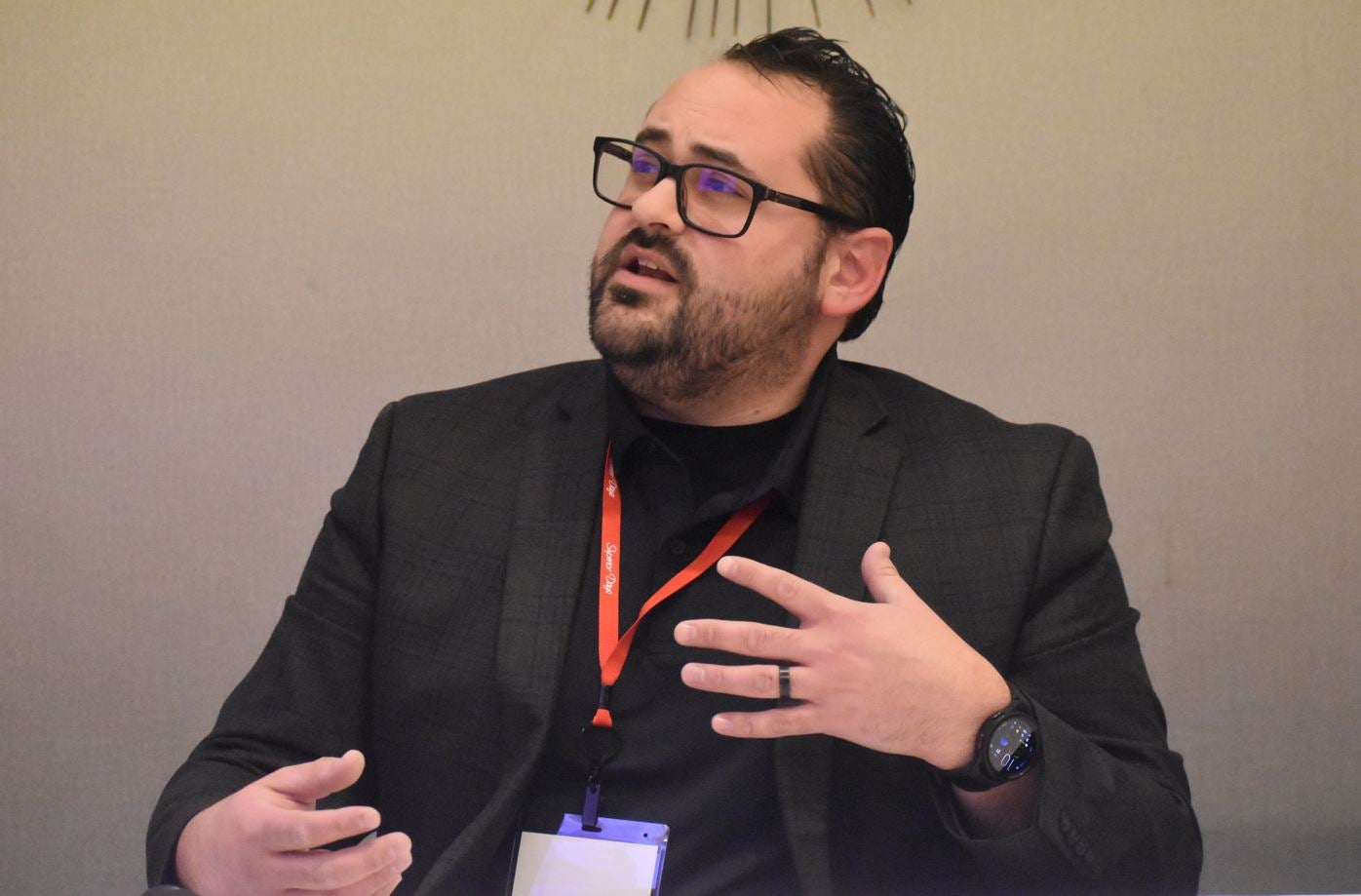
Nextera Communications is one example of an internet provider that reports offering internet speeds of 1,000/1,000 megabits per second. However, the FCC map shows at least one location in Superior where the company doesn’t provide the level of service it reported. Elm said he’s unaware of anywhere in Superior where Nextera has the infrastructure to support that level or service.
In a statement, the company’s president Greg Arvig said officials continue to work on how to accurately represent its service coverage with the new FCC maps.
“Also, unlike wired service providers, our service is a wireless technology where accurate coverage areas and speeds can vary widely and be hard to predict,” Arvig said. “Our goal is to continue to fine-tune our database to more accurately represent our service offering and coverage area.”
Updated FCC maps also show multiple pending challenges to service offered at locations in Superior by Lumen Technologies, Inc. better known as CenturyLink. A spokesperson didn’t immediately respond to a request for comment Tuesday.
Superior is planning to build its own fiber optic network with an estimated cost of more than $50 million. The goal of city officials is to lower internet costs for residents while increasing speed and reliability of service. Elm said the city hopes to utilize grants to help fund the project, which would be more difficult to access with inaccurate maps.
In Wisconsin, around 1.3 million people can’t access or afford broadband service. The Wisconsin Broadband Office estimates around 650,000 residents lack access to high-speed internet or speeds of 25/3 megabits per second. The state estimates another 650,000 people can’t afford broadband.
The governor’s budget proposal requires approval from the Republican-controlled Legislature. Sen. Howard Marklein, R-Spring Green, who co-chairs the Legislature’s budget-writing committee, declined to comment on Evers’ proposed investment to expand broadband. Co-chair Rep. Mark Born, R-Beaver Dam, said in a statement that funding for state agencies and programs, including broadband, will be “deliberated and decided in the coming months.”
Wisconsin Public Radio, © Copyright 2024, Board of Regents of the University of Wisconsin System and Wisconsin Educational Communications Board.

